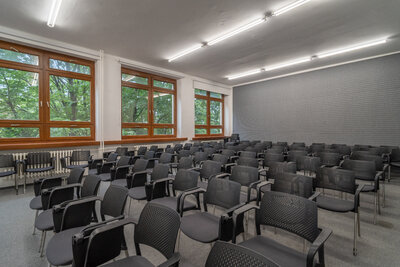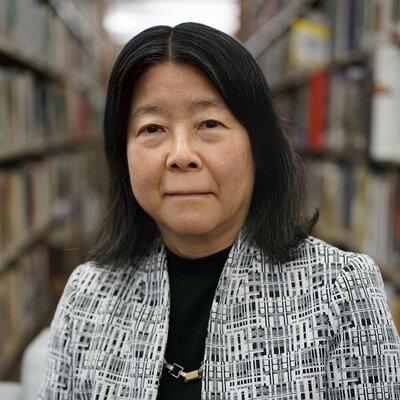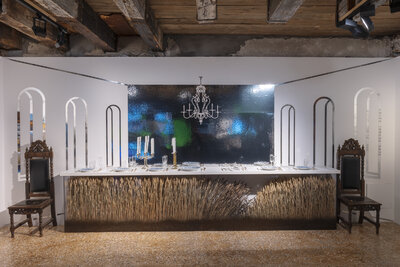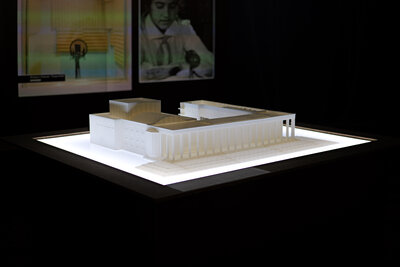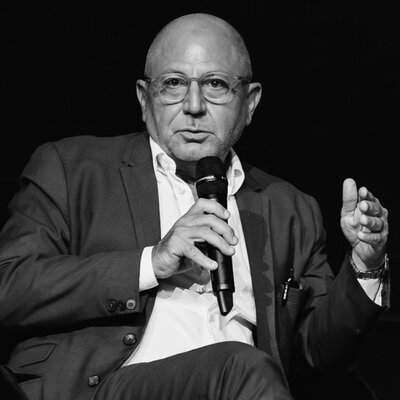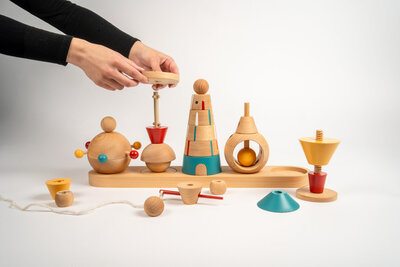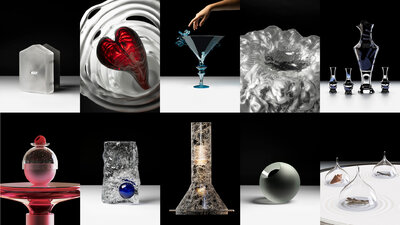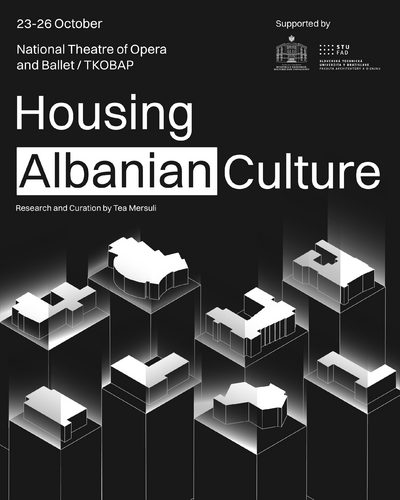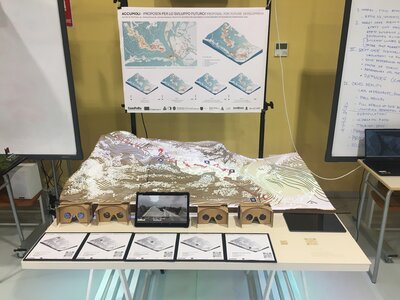Former FAD STU student Lucia Stümpel Krnčanová won the Grand Prix at the 9th FORMA Biennial for her design of aids aimed at improving fine motor skills in older people, In Good Hands. She was also nominated for the National Design Award in the Student Design category for the same work. The award-winning work was a diploma thesis created at the FAD STU Design Institute under the supervision of Professor Peter Paliatka. Its practical outcome was a set of five aids that offer a comprehensive approach to developing fine motor skills and cognitive functions in the elderly population, while also allowing for variability in task difficulty and adaptation according to the individual abilities of the user. When Lucia Stümpel Krnčanová heard the news of her success at the FORMA Biennial and NCD 2025, she felt great joy and gratitude: "For a student, such an award is not only confirmation that their work is meaningful, but also an opportunity to move forward to new opportunities," she says. For her personally, it is above all a huge motivation to continue creating with even greater dedication, to devote herself to projects that fulfill her and in which she sees benefits for others as well.
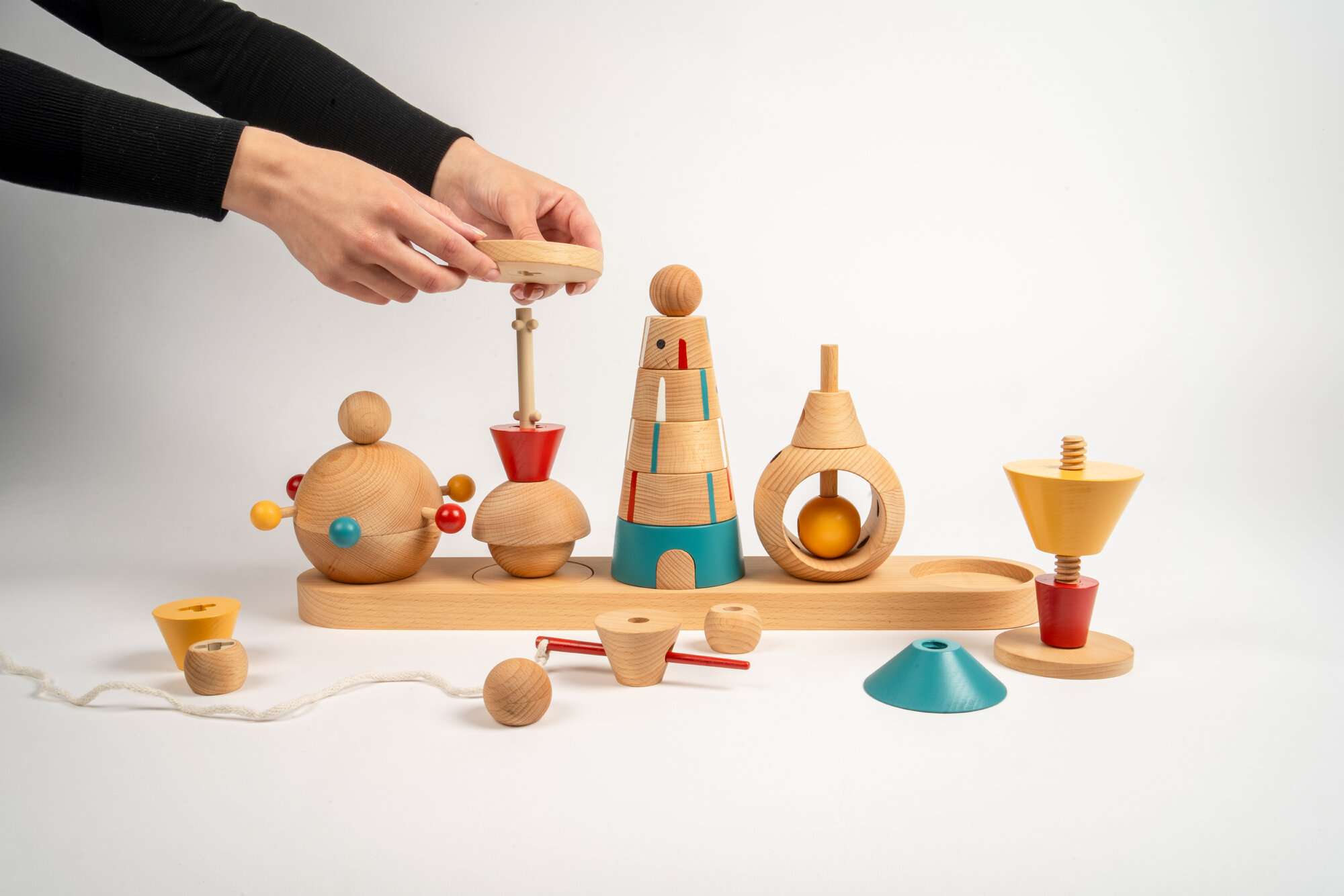
Motivation for seniors
Lucia Stümpel Krnčanová explained that the In Good Hands aid has motor, cognitive, aesthetic, and social dimensions. It is not just a functional aid, but an object that motivates seniors with its playfulness and provides them with an experience. She chose wood as the material because it is pleasant to the touch, environmentally friendly, and familiar to older people. "My intention was to create an object that at first glance looks like a natural part of the interior," she added. The visual appearance of "toys for adults" is aimed at stimulating the imagination of users and invoking their childhood memories, which could motivate them to use the device regularly. The author also wanted her aids to be intended not only for individual training, but also to facilitate meaningful activities between peers or between grandparents and their grandchildren. "In this way, seniors train their abilities and children develop theirs." According to her, this turns the aid into a means of intergenerational connection and shared experience.
Experience with a relative
She came up with the topic for her thesis before the summer holidays began. "I drew primarily on my own experience with my relative, who has long-term problems with fine motor skills due to osteoarthritis. I had the opportunity to understand how these limitations interfere with everyday life in common activities such as personal care, dressing, eating, and tasks such as writing, cutting, and the like. I saw that the loss of fine motor skills also has a psychological impact. People can lose their self-confidence, independence, and desire to be active. This experience motivated me to look for a solution that would have a real benefit for seniors." During the design process, she also asked herself how her life would change if she were unable to button her own clothes: "For a healthy person, this is a completely trivial task, but for older people or people with associated illnesses, it is a daily challenge. This question further shaped my approach, because I began to look at the issue with empathy and tried to get as close as possible to the emotions of people affected by this problem.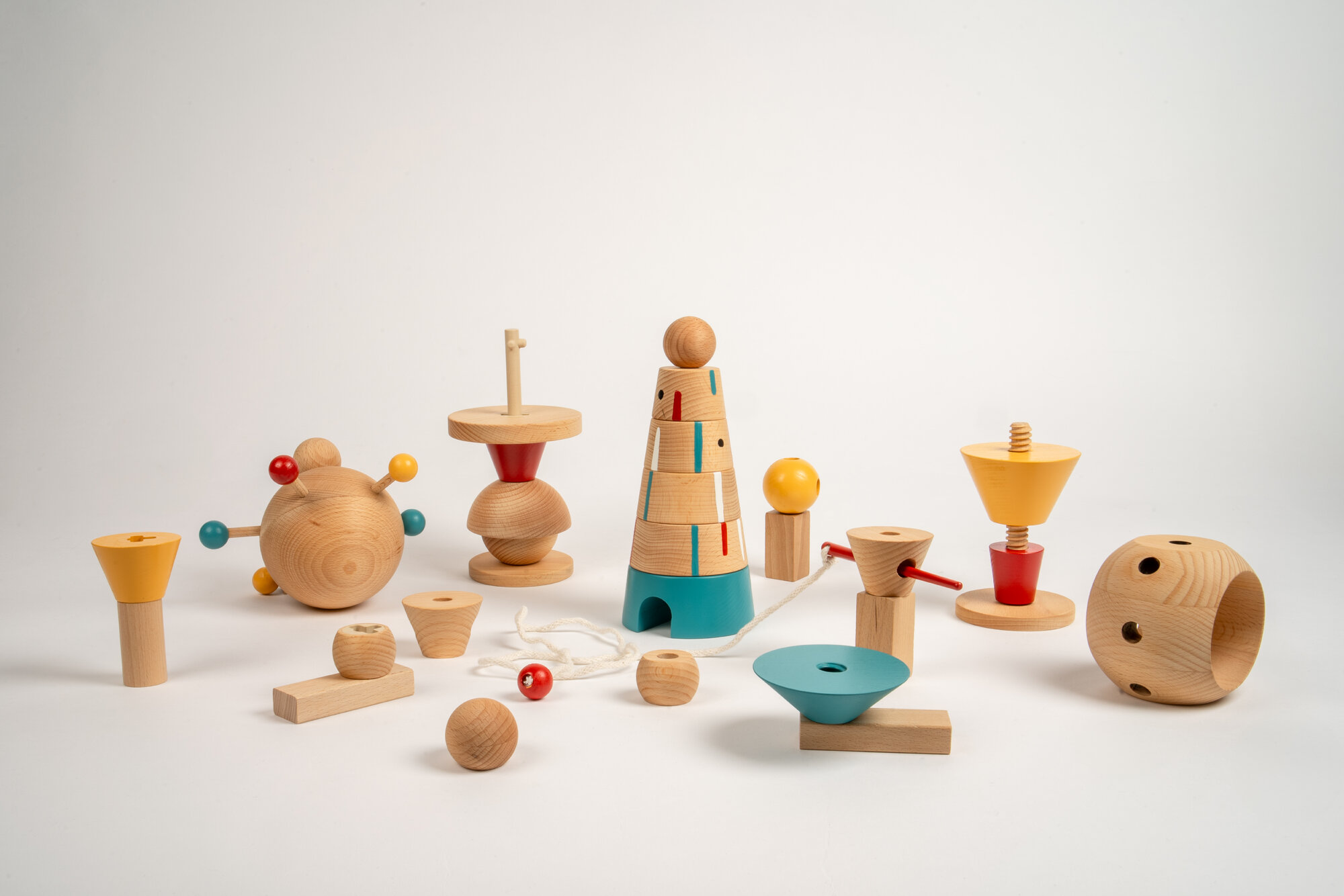
Consultations, simulations, and testing
She regularly consulted with physiotherapist Nina Hehejková, who guided her throughout the design process and provided valuable expert information. It was also necessary to spend time observing patients during their daily activities at home and to research currently available aids directly in social facilities and specialized stores. During her research, she also had the opportunity to undergo simulations of the most common geriatric diseases, such as Parkinson's disease and various types of visual impairments, such as cataracts. During the simulations, she tested basic manipulation of objects, writing, and reading to better understand the user's situation. After creating the first prototype, she conducted user testing at the Viničky Social Services Facility in Nitra. This was followed by further steps and the subsequent implementation of the findings into the final form of the aids. The international jury of the 22nd National Design Award, chaired by Associate Professor Michala Lipková, head of the Department of Design at FAD STU, evaluated 127 works in the second round of judging, selecting 90 works for an online exhibition and 28 nominations in individual categories: Fashion and Fashion Accessories, Art, Design and Crafts, Sports and Leisure, Home and Public Space, Work and Mobility, New Horizons, and Student Design.
The winners will be announced on October 21,2025 during the NCD Gala Evening at the Nová scéna Theater.

